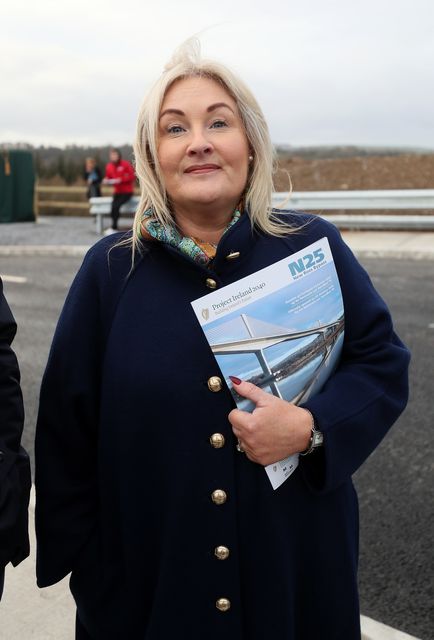Ireland’s new parliament is to meet for the first time after an election which is expected to see the outgoing government return with a new junior partner.
Fine Gael and Fianna Fail – the two main coalition partners in the last government – bucked a global trend of electorates ousting governments and instead increased their support in November’s election, leaving them just two seats short of a majority.
The parties, forged from opposing sides of Ireland’s Civil War and who entered government together for the first time in 2020, are expected to rely on independents to make up the final numbers.
Though the centre-left Social Democrats and Labour Party have yet to rule themselves out of government talks, momentum is behind the Regional Group of eight or nine independent TDs to enter government.
Talks are expected to continue in the coming days before breaking for the Christmas period and resuming in January.
Meanwhile, the new Dail will sit for the first time at 10.30am on Wednesday and will vote by secret ballot to elect a new Ceann Comhairle (speaker).
One of the greatest indicators of the Regional Group being in pole position to enter government is support for its candidate Verona Murphy to become the next Ceann Comhairle.
Taoiseach and Fine Gael leader Simon Harris urged his party’s TDs to back Ms Murphy.
Irish deputy premier and Fianna Fail leader Micheal Martin is said to have told the incumbent candidate, Fianna Fail’s Sean O Fearghail, that he will be asking his party colleagues to vote for Ms Murphy.
“His (Mr Martin’s) argument was, and I suppose he’s better able to make these arguments and more entitled to do so than I am, but his argument was that they wanted to form a government that would be stable and that would endure for the full term of five years,” Mr O Fearghail said on RTE’s Today With Claire Byrne programme.
Verona Murphy (Brian Lawless/PA)
“He saw the nomination and of the election of Verona Murphy as being critical to that. I am conscious that there have been soundings from the regional independent group that it might not, in fact, be a game changer.”
Asked if he still wants the job, he said: “I would happily withdraw but for the fact that if I don’t defend the principle of the primacy of the Dail and the right of the members to elect in an unfettered way whomsoever they please, and if I don’t stand up against this bartering for a position which is going on, well then who will?
“Because I’ve dedicated two terms in office to reform, and the principles of that reform are important to me, and I don’t want to see any of them rolled back.”
Other candidates vying for the 255,000-euro job include Fianna Fail’s John McGuinness and Sinn Fein’s Aengus O Snodaigh.
Mr O Snodaigh has pledged to take a salary cut if he is elected to the role and that it should be benchmarked against ministers’ salaries of just under 200,000 euros a year.
